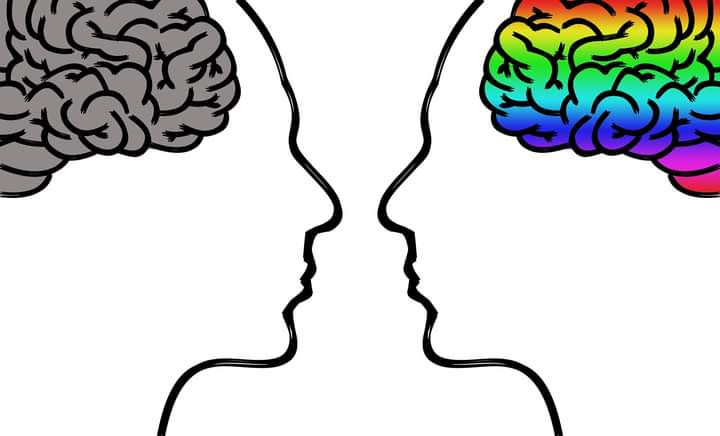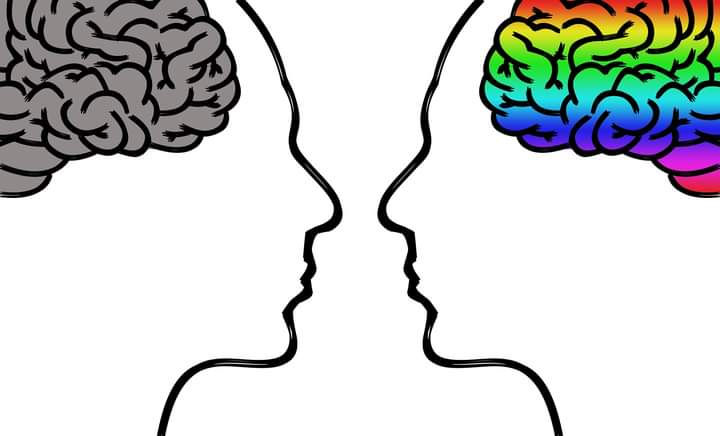When Pride Becomes Sick!
- Debora Wiseman
- 20 de dez. de 2022
- 4 min de leitura

Pride is a feeling inherent in human beings. It is present in all of us, without exception, in smaller or larger amounts. It corresponds to the satisfaction felt in the face of our achievements or those of people we love.
Feeling proud of being yourself and recognizing your worth is very important, especially for our good self-esteem. But, remember that excesses are never positive and being an excessively proud person can prevent you from putting into practice a necessary virtue in everything in life: humility.
Excessive pride and lack of humility can cause serious emotional and psychological harm.
In fact, it can be interpreted as a double-edged sword: one side is blunt and harmless and the other is harmful.
Origin of pride
Pride is an emotion we experience when we achieve something worthwhile or when it happens to someone close to us. However, while it helps us feel worthy and aware of our own worth, ensuring that no one underestimates us, when in excess it can interfere with our ability to feel empathy and make us appear arrogant and self-centered.
Some experts claim that arrogant pride is often the result of narcissism, which is excessive admiration for oneself. Thus, the person who has this characteristic sees himself as someone more special than others, without empathy and humility,
Does the excessively proud individual unintentionally feed unhealthy pride?
Psychologists believe that proud people have internal conflicts that originate from childhood or from traumatic experiences at other times in life. However, it is also possible to wrongly feed pride. The adoration and good feelings of self-actualization can go to one's head, inflating one's ego disproportionately. The difference is that the second situation is easier to get around. When bad pride is fed from childhood, the proud person develops defense mechanisms and beliefs on top of it. Its reframing is more difficult and, above all, painful. Although this is a complex process, it is not impossible when you want to live an emotionally healthy and ecological life.
Harmful consequences of excessive pride. A person who is excessively proud can face various types of problems in their life, such as those listed below:
1 - Illusion in the perception of situations
The egocentric view of things makes a person unable to see situations realistically, without accepting opinions and criticism from others, missing a great opportunity for growth.
2 - Other people's devaluation
As it is important to like yourself and put yourself as a priority, it is often necessary to know how to make concessions, after all, giving in is part of the ecology in personal relationships, such as between family and friends. However, excessive pride can prevent the individual from seeing this, and can seriously damage their relationships.
3 – Abuse of power
An overly proud person assumes a more prominent position, either in society or in a company, humiliating those he considers inferior.
4 – Arrogance
Arrogance is a consequence of excessive pride. Arrogant individuals disrespect others and feel that everyone has an obligation to constantly do their bidding.
5 – Devaluation of important details
Humility is a fundamental virtue in all situations in life. Those who are humble tend to seek information before taking an important action, in order to minimize the chances of failure. The proud person, on the other hand, behaves as if he already knows everything, which leads him to ignore valuable details and may result in superfluous errors that could have been avoided.
Sick pride is a characteristic of those who need to fill emotional voids. This will only be remedied satisfactorily through reconnection with emotions and feelings. If pride is a way of compensating for past trauma, it will also be necessary to reconnect with unpleasant memories. The most efficient way to do this and, consequently, to control unhealthy pride is to work on honesty. This is often proud people's worst nightmare, but it's also the miracle cure for excessive pride.
Honesty allows for a reunion with emotions without barriers or illusions.
To be honest with yourself, you need to:
1. Recognize and admit that you are a proud person. A difficult task, but not impossible and extremely important. Reflecting on the influence of this feeling in your life is the first step to controlling it.
2. Face the real facts. Honesty consists of facing your truth in the eyes, without fear of self-criticism and other people's judgments. Accepting inappropriate personality traits and behavior is not a very pleasant exercise, but it is liberating!
3. Express gratitude. Expressing gratitude has great power to take the spotlight off of you and onto the gifts and joys in your life, as well as recognizing the importance of loved ones to your success and well-being.
4. Confront emotional pain. As unhealthy pride can be related to emotional pains originating in the past, it is essential to confront them with wisdom and compassion.
In addition to our tips, it is always important to seek professional help from a competent therapist, in the process of self-development and self-knowledge, if pride is taking over and the process of change is too challenging.
IMPORTANT: We are Holistic Therapists and our treatment is alternative. Even presenting satisfactory results, it is essential to emphasize that only duly qualified physicians can diagnose diseases, recommend treatments and prescribe medication. If you need to take medicine, do so only with proper MEDICAL ADVICE. In addition, it is ESSENTIAL that you continue with therapy sessions even if you feel better after starting drug treatment.
All the best.
See you next week
Shalom!
Debora and Daniel Wiseman





Comentários